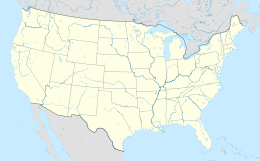Cortlandt Street (IRT Broadway – Seventh Avenue Line)
|
Cortlandt Street
no regular service |
|||
|---|---|---|---|
| Closed New York City Subway rapid transit station | |||

Station destruction caused by September 11, 2001 attacks
|
|||
| Station statistics | |||
| Address | 180 Greenwich Street, New York, NY 10007 United States |
||
| Borough | Manhattan | ||
| Locale | Financial District, World Trade Center | ||
| Coordinates | 40°42′36″N 74°00′43″W / 40.71°N 74.012°WCoordinates: 40°42′36″N 74°00′43″W / 40.71°N 74.012°W | ||
| Division | A (IRT) | ||
| Line | IRT Broadway–Seventh Avenue Line | ||
| Services | no regular service | ||
| Transit connections |
|
||
| Structure | Underground | ||
| Platforms | 2 side platforms | ||
| Tracks | 2 | ||
| Other information | |||
| Opened | July 1, 1918 | ||
| Closed | September 11, 2001 | ||
| Rebuilt | 2018 (projected) | ||
| Former/other names | Cortlandt Street–World Trade Center | ||
| Traffic | |||
| Passengers (2015) | 0 |
||
| Rank | 422 out of 425 | ||
| Station succession | |||
| Next north | Chambers Street: no regular service | ||
| Next south | Rector Street: no regular service | ||
|
|||
|
|
|
|
|
|
|
|
|
|
|
|
|
|
Cortlandt Street (also known as Cortlandt Street–World Trade Center) is a temporarily closed station on the IRT Broadway–Seventh Avenue Line of the New York City Subway in Lower Manhattan. The station was demolished after sustaining heavy damage during the September 11 attacks and is currently being reconstructed as a part of the World Trade Center Transportation Hub.
The original station was originally located under Cortlandt and Greenwich streets, with a standard two side platform layout with two tracks, the rebuilt station will be built directly under the National September 11 Memorial & Museum, under Greenwich Street. It will be connected to the Cortlandt Street (BMT), Chambers Street–World Trade Center/Park Place, and World Trade Center (PATH) stations to become the World Trade Center Transportation Hub.
The station was named after Cortlandt Street, which formerly ran east and west from Broadway to West Street in Lower Manhattan, nicknamed "Radio Row" because of the many electronics dealers on the street. The station was constructed and opened in 1918. It was originally located under Cortlandt and Greenwich streets, with a standard two side platform layout with two tracks and mosaic decorations by Squire J. Vickers depicting a ship.
In 1965, Cortlandt Street west of Church Street was demolished to create the superblock of the World Trade Center. The station, with entrances at Vesey Street and inside the World Trade Center concourse, was not particularly close to the remaining block of Cortlandt Street. The old tiling and mosaics disappeared and were replaced with 1970s-style tiles, which essentially was varnished, tan-colored bricks. One of the Vickers mosaics is preserved in the New York Transit Museum.
...
Wikipedia




